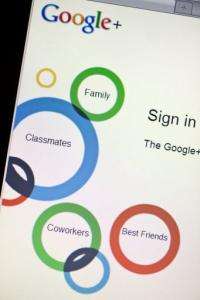Fate of digital assets 'vague' after death

When you die, does your Facebook account die with you? Or that online photo album? What about your iTunes playlist, blogs or tweets?
Laws in the United States and elsewhere are vague on the fate of digital rights to online accounts after death, leading to complications and legal wrangling for survivors who want access to the online services of the deceased.
Legal experts say it's unclear who owns what in the Internet "cloud," and that in some cases the user agreement for email or social networking sites terminates when a person dies.
In the case of online photo albums, "those photos are yours and you have a copyright, but the problem is if you upload them to a site like Shutterfly, the property you own is now stuck behind a license," said Nathan Dosch, a Wisconsin attorney specializing in estate planning.
"The underlying asset is still owned by you but the access terminates on your death. The same can be said about emails."
Gerry Beyer, a professor at Texas Tech University School of Law, said the definition of "digital assets" remains subject to interpretation. A key issue is whether what is in the online accounts is "property" with any value.
This leaves open a great potential for litigation, he said.
"You could think the last month of tweets from (late British singer) Amy Winehouse would be valuable... what if the company erases it all?" said Beyer. Some accounts may have actual value, such as revenue-producing blogs, while others may have important sentimental value.

In one case that drew considerable attention, the family of a US Marine killed in Iraq went to court in 2005 after being blocked from getting access to his Yahoo email account, with the company arguing that it could not release "private" information and that the account was "non-transferable" under terms of service.
Two states, Oklahoma and Idaho, have passed laws that address the issue of survivor rights to digital assets, but this area of law is slowly evolving, say legal analysts.
Each service has its own definition: Facebook will allow family members to remove an account or create a "memorial" page.
Google's user agreement says that "in rare cases" it may provide Gmail content "to an authorized representative of the deceased user." Yahoo will only provide access with a court order.
Christopher Guest, an estate planning lawyer in Washington, said challenges are rare but growing.
"Typically the challenger wanting access has won, but you have to spend a lot of money on court costs. It is a developing area of law," he said.
The legal void has spawned a number of startups seeking to help people provide their heirs with access after death.
"Nobody really likes to think about mortality, especially not their own," said Jeremy Toeman, co-founder of a startup called Legacy Locker, which bills itself as a "secure repository for your digital property."
Toeman said he supports a digital "manifesto" that would establish rights to online accounts for a reasonable period.
He said that in planning for handling online accounts, consumers can use a number of options including simply writing down instructions for family members, but adds, "We think that if it's an online world and an online identity you should have an online service."

Experts advise against detailing all digital assets in a will, which could become a public document, opening up the possibility of identity theft.
Some say a separate document or executor for digital assets could be useful, and Beyer said that one way to preserve access would be to register accounts in the name of a trust, control of which could be transferred on death.
There is no easy answer for handling the issue, say Evan Carroll and John Romano, who operate the blog "The Digital Beyond" and authored the book "Your Digital Afterlife."
Some may seek an online service, while others can handle their accounts by creating a spreadsheet or simply having a conversation with their family. But it does require some planning.
"This is a dirty little uncovered corner of the Web, and we need to realize that if we want to be a digital society we need to be able to deal with digital assets after death," Romano said.
From the consumer's point of view, it would be useful to be able to name beneficiaries for accounts, but this could create considerable administrative costs.
"Google or Facebook aren't built to verify death, and they have too many users," said Dosch, who helped advise the creators of one service called Entrustet.
"A lot of the folks in the Internet boom are too young to care, or have an air or invincibility," said Dosch. "As you see more baby boomers nearing retirement and passing away this will become a more pressing issue."
(c) 2011 AFP



















